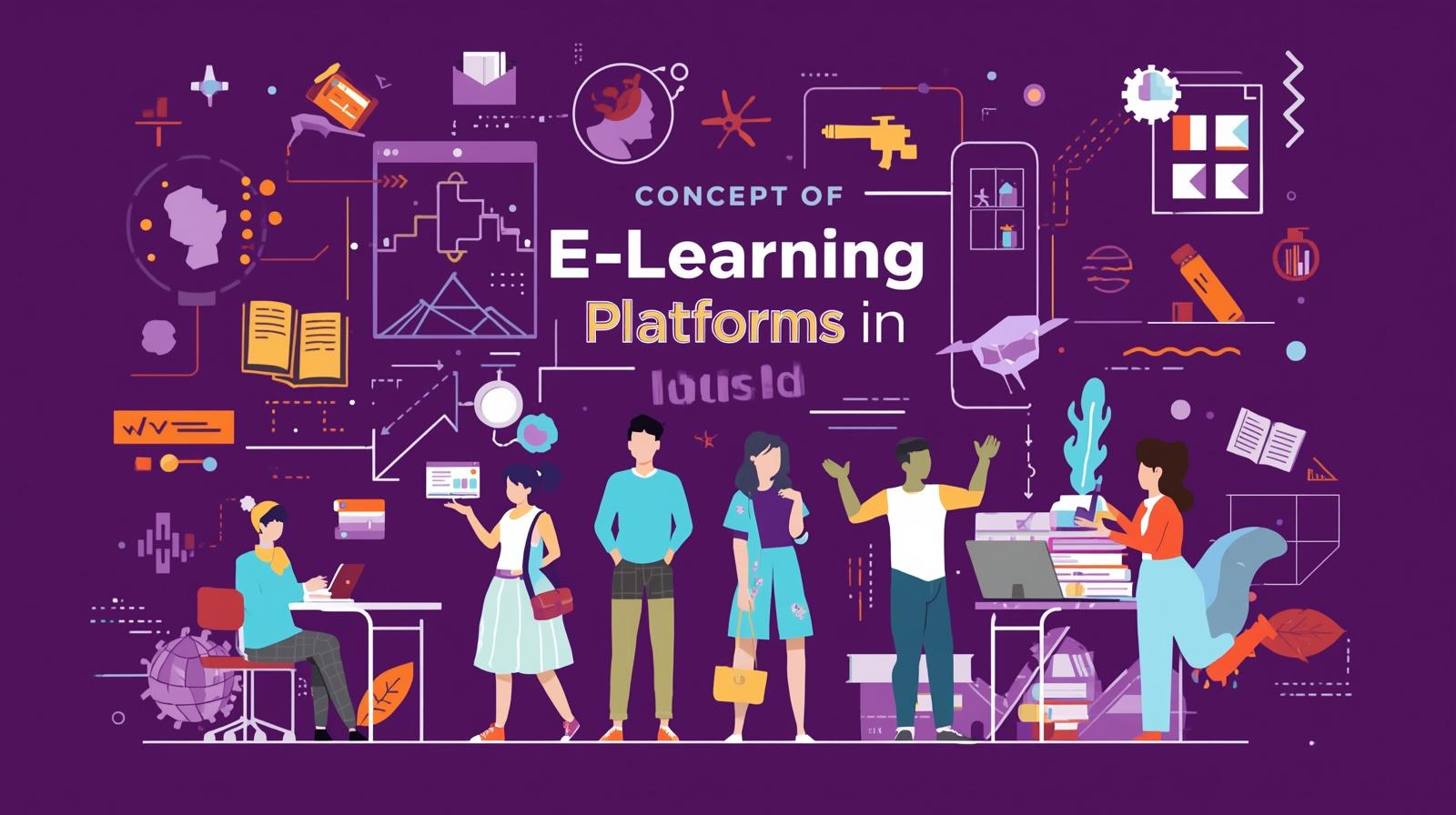Education in Nigeria has undergone a remarkable transformation over the past decade, and one of the most revolutionary changes is the rise of e-learning platforms Nigeria. At Nigeria Journal, we recognise that digital education has moved beyond being an alternative—it is now an essential pillar for students, professionals, and institutions seeking progress in today’s technology-driven world.
From primary school pupils to university scholars and working professionals, e-learning platforms have opened doors that were previously locked by geography, infrastructure, or limited resources. With the spread of mobile devices and internet connectivity, online learning has given Nigerians the power to access global knowledge while shaping a uniquely local digital learning culture.
The Rise of Digital Learning in Nigeria
E-learning is more than simply moving classrooms to computer screens. It represents a cultural and educational revolution where digital tools, platforms, and virtual spaces blend to create inclusive, flexible, and accessible learning. Nigeria, with its youthful population and growing tech ecosystem, has become fertile ground for this transformation.
Why E-Learning Platforms Are Transforming Nigerian Education
Flexibility and Accessibility
Students no longer need to travel long distances or relocate for quality education. E-learning provides flexible access to lectures, tutorials, and resources anytime, anywhere.
Inclusivity in Education
Digital platforms remove the traditional barriers of classroom capacity and geographical limitations, enabling learners from rural and urban communities alike to participate.
Cost-Effective Learning
Compared to traditional schooling, online platforms significantly reduce costs associated with transportation, housing, and printed materials.
Popular Categories of E-Learning Platforms in Nigeria
| Platform Type | Features | Audience |
| Academic-focused Platforms | Virtual classrooms, exam prep, curriculum | Students |
| Professional Skill Platforms | Career courses, certifications | Workers & Graduates |
| Test Preparation Platforms | WAEC, JAMB, NECO, and professional exams | Learners |
| Language Learning Platforms | English, French, local languages | General |
| Technical & Coding Platforms | IT, coding, web development | Tech enthusiasts |
How Nigerian Institutions Are Adopting E-Learning
Universities, secondary schools, and training institutes across Nigeria are increasingly embracing e-learning platforms. Some institutions blend traditional classrooms with digital tools, while others offer fully virtual learning. This hybrid approach has become the bridge between conventional systems and modern learning environments.
The Role of Mobile Technology in Online Education
Nigeria’s digital education journey is powered by mobile phones. With affordable smartphones and internet data bundles, learners access platforms with ease. Mobile-first platforms are particularly popular, as they provide user-friendly interfaces, video lectures, quizzes, and discussion forums directly on handheld devices.
Challenges Facing E-Learning Platforms in Nigeria
Internet Connectivity Issues
Although internet penetration is improving, inconsistent connectivity still hinders smooth digital learning in many regions.
Affordability of Data
The cost of internet data remains a barrier, limiting the time students can spend on online platforms.
Limited Awareness
Some communities still lack awareness of the value of online education, restricting adoption rates.
How E-Learning Platforms Overcome Barriers
Offline Learning Options
Many platforms now provide downloadable content for offline study, reducing dependence on internet connectivity.
Affordable Subscription Models
Flexible pricing plans allow students and professionals to choose affordable learning options.
Partnerships with Telecom Providers
Some platforms collaborate with mobile operators to offer subsidised data plans for learners.
Skills and Careers Boosted by Nigerian E-Learning
Academic Advancement
Students preparing for national exams benefit from structured tutorials, practice questions, and video classes.
Professional Growth
Working professionals can upskill with short courses in management, finance, and communication.
Tech and Innovation Careers
With coding, design, and digital marketing in demand, e-learning platforms are grooming the next generation of Nigerian innovators.
Comparing Traditional Education and E-Learning
| Feature | Traditional Education | E-Learning Platforms |
| Accessibility | Limited by geography | Accessible globally |
| Cost | High due to infrastructure | Affordable and scalable |
| Flexibility | Fixed schedules | Learn anytime, anywhere |
| Interaction | In-person only | Virtual discussions and forums |
| Scalability | Limited classroom size | Unlimited learners |
Steps to Get Started with E-Learning Platforms
Identify Your Learning Goals
Decide whether you need academic support, career skills, or professional certifications.
Choose a Suitable Platform
Look for platforms that align with your needs, whether exam prep, professional development, or technical training.
Set a Study Schedule
Flexibility is key, but consistency ensures progress. Create a study routine and stick to it.
Engage Actively
Participate in discussions, complete assignments, and practice regularly.
The Future of E-Learning Platforms in Nigeria
As technology adoption increases, e-learning platforms in Nigeria will continue to evolve. Artificial intelligence, gamification, and virtual reality will likely be integrated into learning systems, creating immersive educational experiences. This future promises inclusivity, scalability, and opportunities that can bridge the skills gap in Nigeria’s workforce.
Addressing Misconceptions About Online Learning
Online Learning Is Less Effective
Many assume virtual learning is inferior to traditional classrooms, but studies show e-learning can be equally effective when properly structured.
Only Tech-Savvy Students Can Benefit
E-learning platforms are designed to be user-friendly, requiring minimal technical expertise.
Online Courses Are Not Recognised
Several e-learning platforms offer certifications recognised locally and internationally, boosting employability.
Frequently Asked Questions
What are e-learning platforms Nigeria known for?
They are digital platforms that provide academic, professional, and technical courses to learners across Nigeria.
Are online certifications accepted in Nigeria?
Yes, many certifications from recognised e-learning platforms are accepted by employers and institutions.
Can rural communities benefit from e-learning?
With mobile-first platforms and offline options, rural learners are increasingly gaining access to online education.
Do e-learning platforms cover exam preparation?
Yes, many platforms provide courses and practice materials for WAEC, JAMB, and other national exams.
Is e-learning affordable in Nigeria?
Yes, subscription plans and flexible payment options make e-learning cost-effective compared to traditional schooling.
Conclusion
E-learning platforms Nigeria are reshaping education and professional development across the nation. At Nigeria Journal, we believe digital learning is more than a convenience—it is a transformative force opening opportunities for millions. As challenges like connectivity and awareness continue to be addressed, the future of education in Nigeria will be powered by accessible, affordable, and innovative e-learning platforms.








